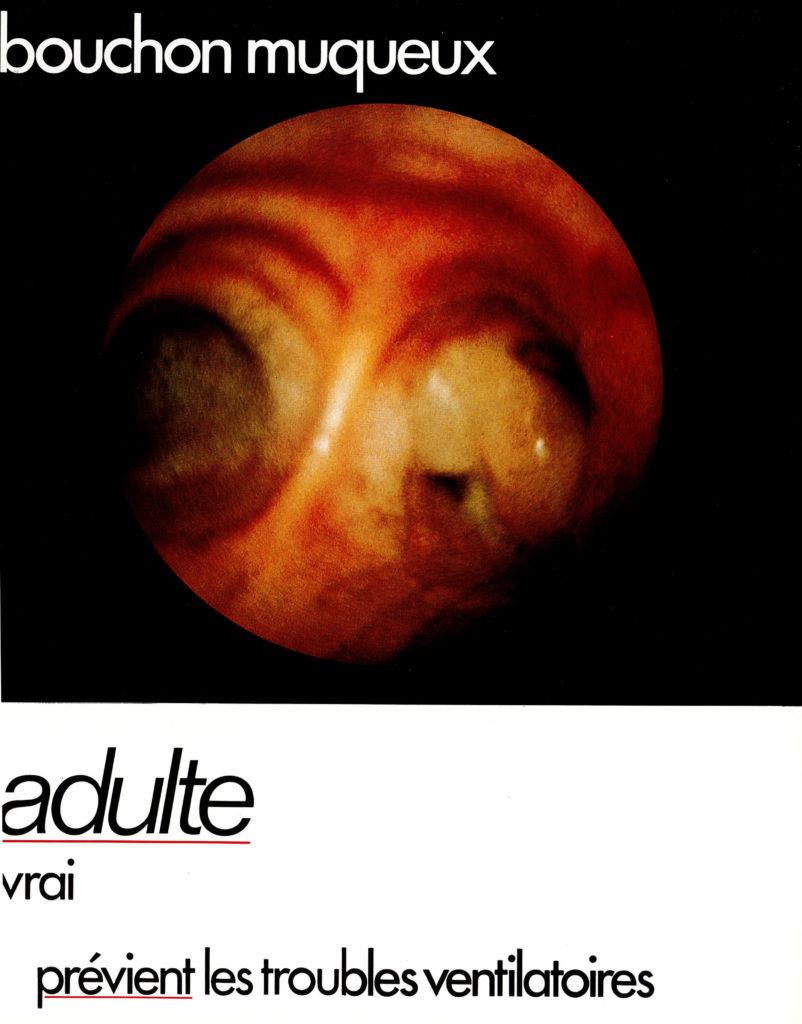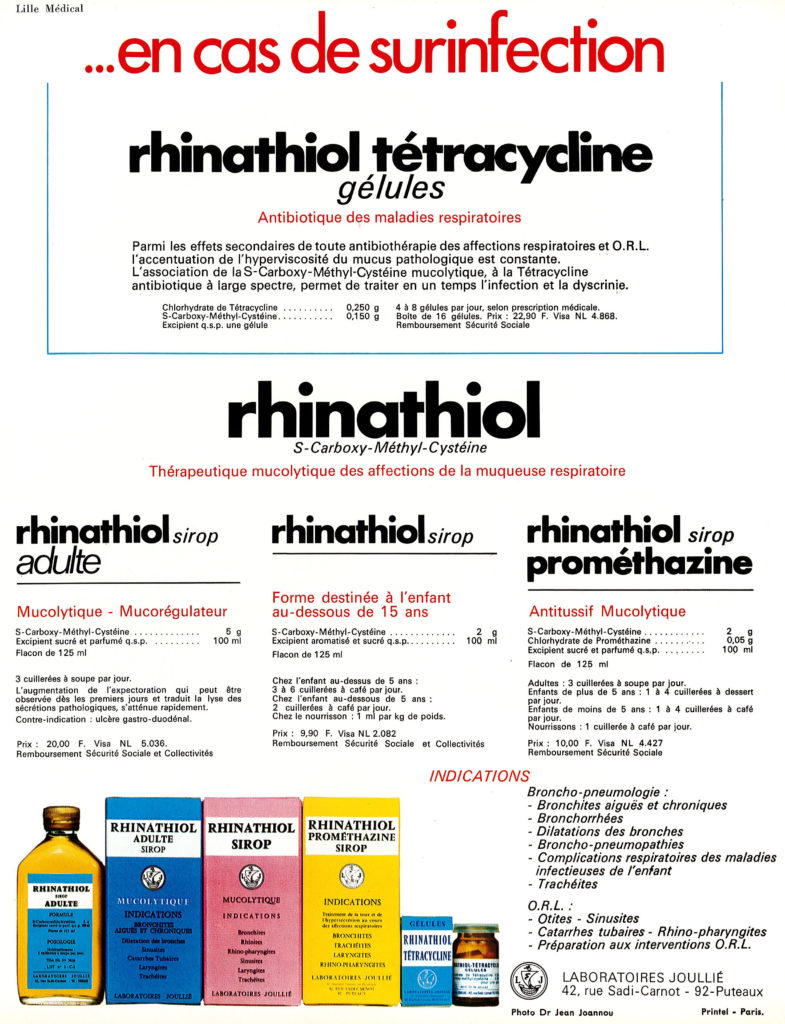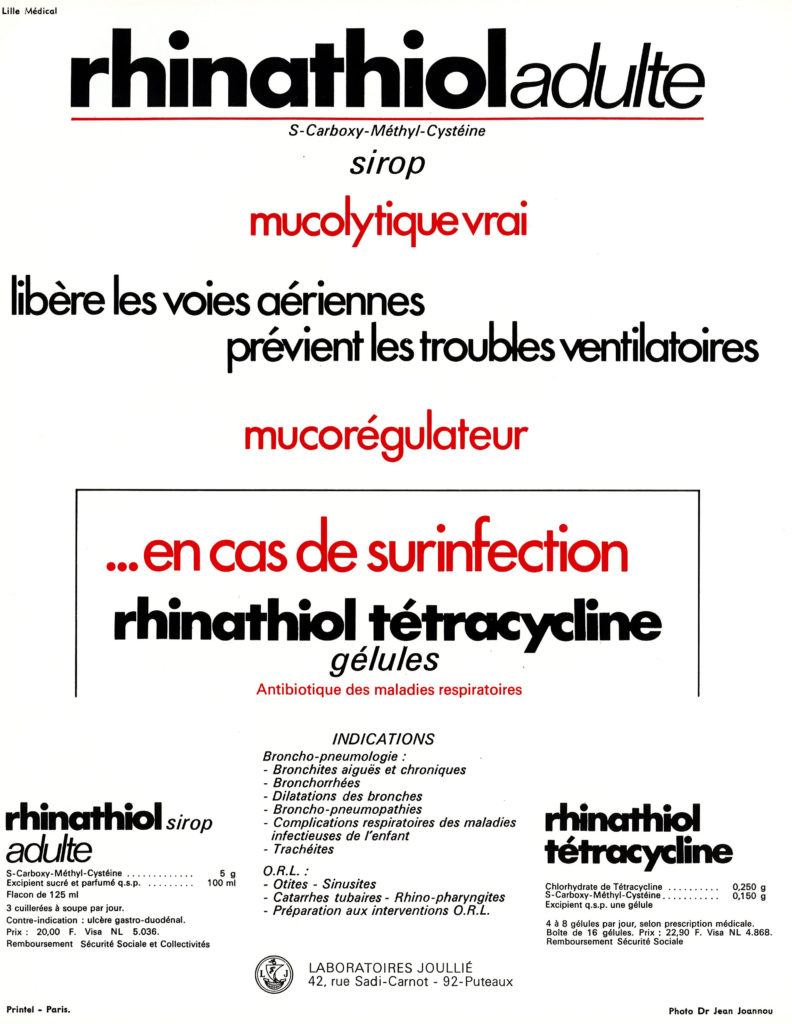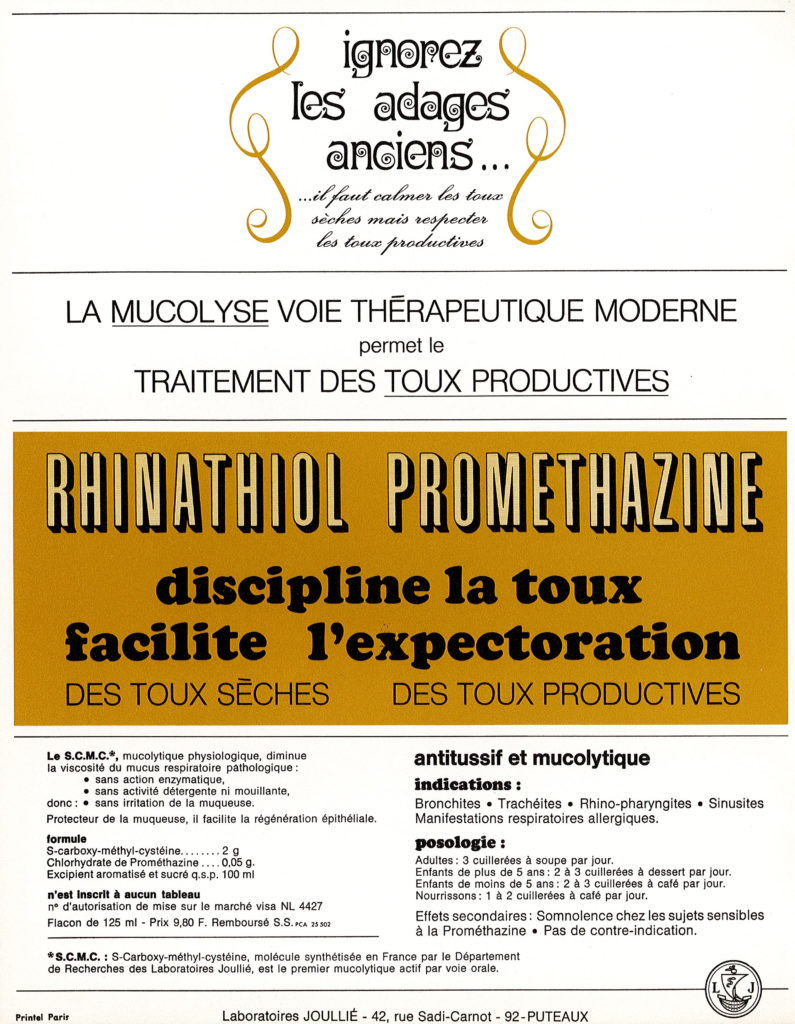The syrup Rhinathiol® contained S-carboxymethyl-L-cysteine, also known as carbocysteine, as the active pharmaceutical ingredient. This product is a well-known mucolytic agent used for more than 60 years in many countries. This simple and affordable muco-active compound displays antioxidant and anti-inflammatory properties. Carbocysteine acts as a free radical scavenger thereby reducing the oxidative stress associated with different pathologies. Here, the drug Rhinathiol® was essentially promoted for the treatment of bronchitis, laryngitis, tracheitis, and bronchial affections. However, carbocysteine has been largely used also for the treatment of several chronic inflammatory diseases, such as chronic obstructive pulmonary disease (COPD), cardiovascular diseases and neurodegenerative disorders. Carbocysteine remains largely used today.



In some cases, S-carboxy-methyl-cysteine was combined with the antibiotic tetracycline, or with the antihistamine agent promethazine chlorhydrate. The association of carbocysteine and promethazine was recommended to treat dried acute coughs. Carbocysteine (combined or not with an antihistaminic compound) is easily affordable and largely used worldwide, notably for the treatment of acute upper and lower respiratory tract infections in children. It is an essential component of respiratory medicine.



The clinical-type illustration showed the bronchial conduct obstructed with a mucous plug, represented as a danger signal. This plug could be eliminated upon treatment with Rhinathiol.

(carbocysteine)


